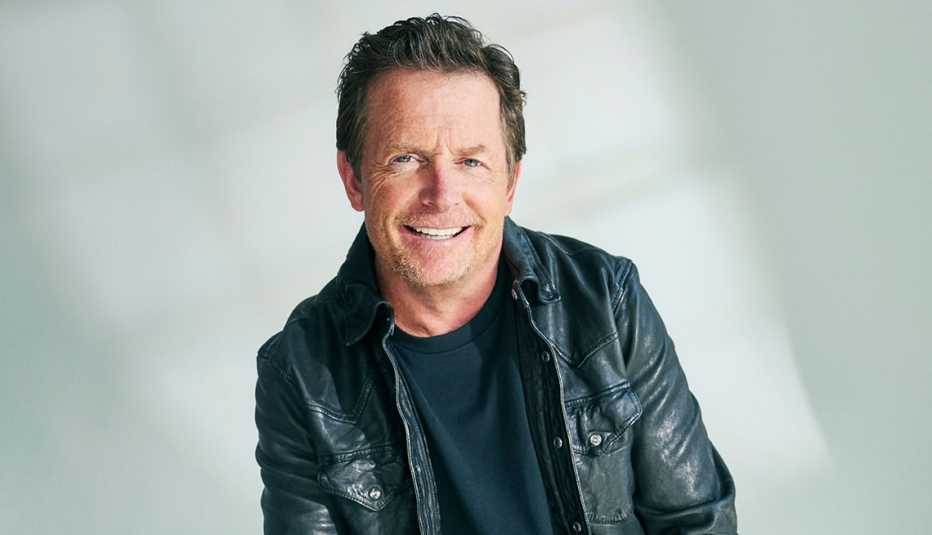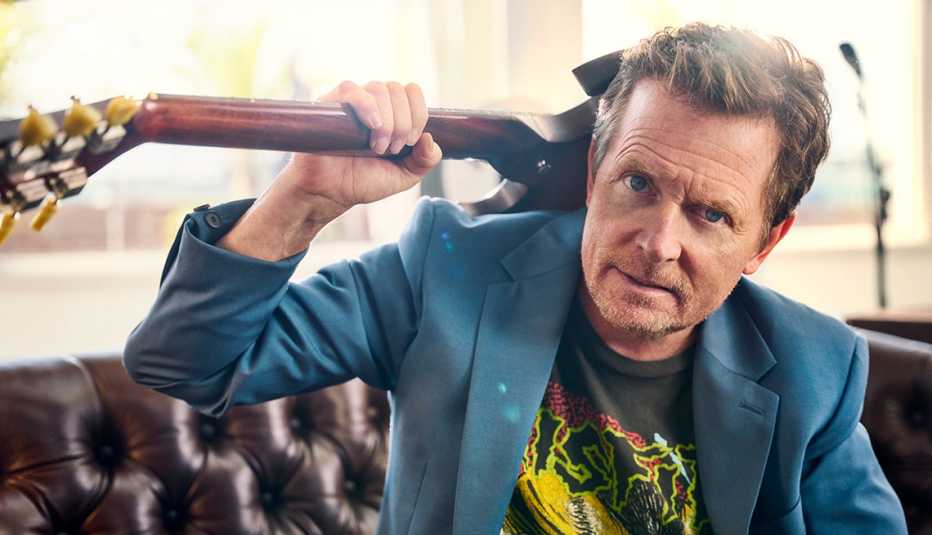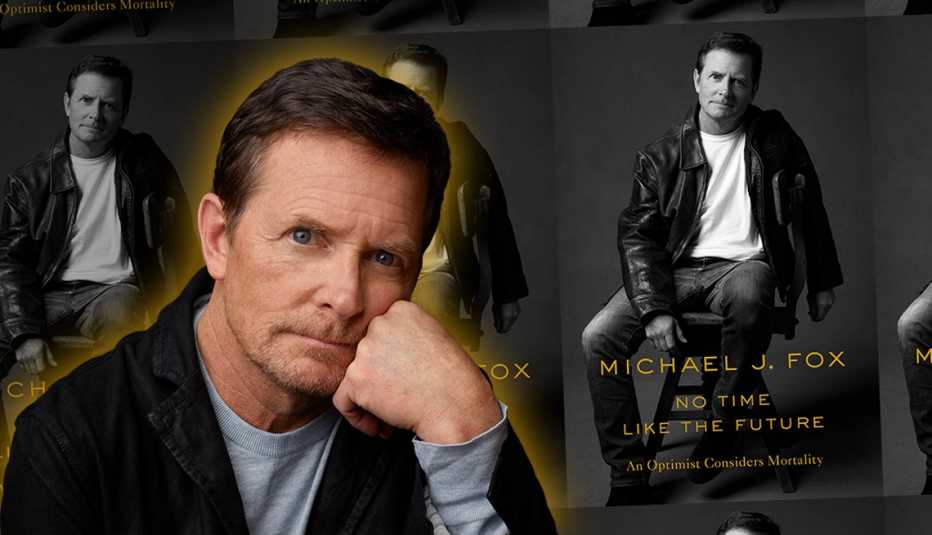AARP Hearing Center
The man zooming with me from his New York summer home on Long Island looks fit, sunned and appealingly in need of a haircut. He wears a black Muhammad Ali T-shirt. The trembling is minimal. He is droll, irresistibly upbeat and endlessly forthcoming.
Parkinson’s disease tends to tamp and subdue its victims to various degrees, and Michael J. Fox is no exception. Even so, the frisky aura that first endeared him to the world some 40 years ago is readily apparent.
The instant my mug appears on his computer screen, Fox offers, “Ah — bearded, sagacious and avuncular!” (Which, in addition to establishing that he’s still got it, is the most delightful spin on “heavyset balding guy” I’ve encountered.) When I ask a second later about how he’s feeling, he quips, “Above average, for a brain-damaged human.”
And we’re off. He has always been a rapid speaker, his mind working faster than the speed of articulation. Parkinson’s does its best to dam and blur his words, but Fox just bursts through, his thoughts erupting in batches, sometimes seemingly stuck together.


“I’m kind of a freak. It’s weird that I’ve done as well as I have for as long as I have,” he admits, before instructing me to disregard his appearance. “People often think of Parkinson’s as a visual thing, but the visuals of it are nothing. On any given day, my hands could be barely shaking or they could be …” He flails about to demonstrate. “It’s what you can’t see — the lack of an inner gyroscope, of a sense of balance, of peripheral perception. I mean, I’m sailing a ship on stormy seas on the brightest of days.”
Any story about Fox is, in part, a story about underestimation, about how the guy has been defying expectations for more than 30 years. I knew this when I profiled him for AARP four years ago. And yet, I admit to him now, I walked out of his office after our 2017 interview and thought, I’m so glad I got the chance to meet him while I still could. Fox laughs at this. “Yeah, the doctor who diagnosed me in 1991 told me I had 10 years left of work.”
“His stamina is phenomenal,” says Fox’s longtime producer Nelle Fortenberry, who has worked with him on his four memoirs. “Even though Parkinson’s is progressive and diminishes what you’re physically able to do, he’s found ways to shift the focus to what he has rather than what he doesn’t have. That’s how he’s managed to bring new things into his life — writing, golf — to fill in for what he’s lost along the way. And these things don’t take energy. They generate it.”
Fox’s wife, Tracy Pollan — whom he met on the set of Family Ties, married in 1988 and with whom he has four children — speaks of her husband’s can-do attitude as if it were a weapon. “I sometimes underestimate the power of his optimism,” she says, “but time and again, I’ve seen him use it to blast his way back.”
He has done a lot of blasting since AARP last checked in with him. In 2018, surgeons partially removed a benign tumor that had coiled around his spinal cord. Four months later, while relearning how to walk — from scratch, “like a cliché from a movie” — he fell at home. Doctors stabilized his shattered left arm with a metal plate and 19 screws. It was a literal and figurative breaking point. As he lay in agony on the kitchen floor waiting for the ambulance, Fox says he had a persistent and angry thought — How full of s--- am I! — and a difficult question: Had he been kidding himself and others about his surgical recovery and maybe more?
As he dropped into what he says was a prolonged “dark patch,” Fox began questioning everything — even his own optimism. Is it still possible for me to be optimistic and realistic at the same time? he asked himself. In other words, had the price of keeping up a good face, of striving to remain the playful, glass-half-full guy audiences had always loved, of being “Michael J. Fox,” become too steep?






































































